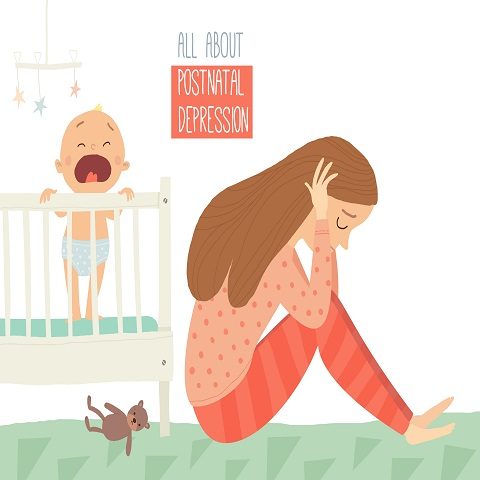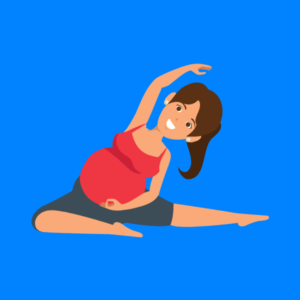Postnatal depression (also called post-partum depression) is a type of depression that many new mothers (and fathers) go through just after having a baby.
Many women feel irritable, in a low mood, tearful or anxious immediately after giving birth but this should normally settle within two weeks and disappear. This is normally called “Baby blues” where mums feel a bit down, or unconnected to their baby in the first week after giving birth.
However, for some, these feelings may be more persistent, which would lead to postnatal depression and may be most obvious when your baby is 4-6 months old.
It doesn’t have to start few weeks after giving birth. Sometimes, some people start experiencing it several months after having a baby and may last for more than a year .These feelings can be mild to severe.
Symptoms of PND
As said previously, some mothers feel baby blues when a baby arrives. But if you have any of the following symptoms of depression for more than two weeks and they are affecting your quality of life, speak to your Doctor.
- Crying a lot and for no obvious reason
- Feeling unconnected to your baby, as if you are not the baby’s mother, or you might not love or care for the baby.
- Having thoughts of hurting the baby/yourself
- Having no energy or motivation to do anything
- Varying appetite ie eating too little/too much
- Sleeping too much
- Losing interest in activities that used to interest you
- Having trouble focusing or memory problems
- Feeling worthless, guilty, or like a bad mother
- Withdrawing from friends and family
- Reduced self esteem
Some women may feel embarrassed, ashamed, or guilty about feeling depressed as they feel they will be seen as bad mothers. This can happen to anyone, so it doesn’t mean you are a bad mom. You and your baby don’t have to suffer so get help by speaking to your doctor.
Treatments
Postnatal depression can be lonely, distressing and frightening, but support and effective treatments are available.
These include:
- Self-help – you can try to talk to your family and friends about how you feel, so you can get the support you need. Let people you trust help with your baby when they offer so you can rest properly. Focus on things you enjoy doing, and rest as much as you can. Go for some regular exercise when you can. Eat a healthy diet and avoid smoking as this can make you feel worse.
- Psychological therapy – a doctor/therapist may be able to recommend a self-help course or may refer you for a course of therapy or Cognitive Behavioural Therapy (CBT)
- Antidepressants – these may be recommended if your depression is more severe or and other therapies haven’t worked. If you are breastfeeding, speak to your Doctor who will prescribe the right medication.
Please get urgent help if you have thoughts of suicide or planning to harm yourself, or cannot look after yourself or your baby you must seek help at once.



